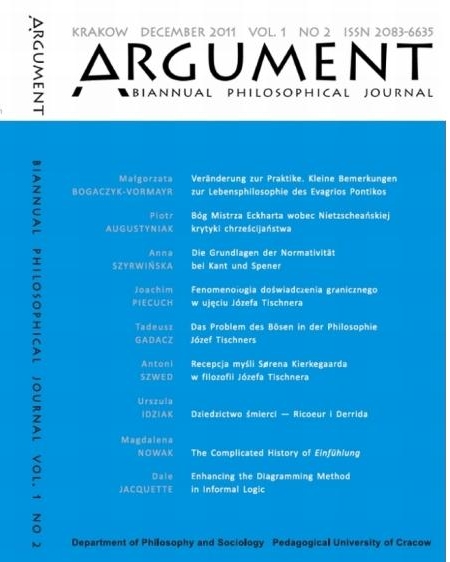The Complicated History of Einfühlung
Słowa kluczowe:
Einfühlung, empathy, understanding, Verstehen, mimesis, re-enactmentAbstrakt
The article analyses the history of the Einfühlung concept. Theories of ‘feeling into’ Nature, works of art or feelings and behaviours of other persons by German philosophers of the second half of the nineteenth century Robert and Friedrich Vischer and Theodor Lipps are evoked, as well as similar theory of understanding (Verstehen) by Wilhelm Dilthey and Friedrich Schleiermacher, to which Dilthey refers. The meaning of the term Einfühlung within Edith Stein’s thought is also analysed. Both Einfühlung and Verstehen were criticized as non-objective and naive methods consisting only in the identification of the subject with the object or the projection of feelings onto the object. The article refers to criticism by Georg Gadamer and Bertolt Brecht and proposes ways to restitute the concept of Einfühlung after this criticism, recalling the theory of empathy by Dominick Lacapra, in terms of its advantages for the historical enquiry, or the myth of Narcissus analyzed in the spirit of psychoanalysis by Julia Kristeva. The article proposes a reformulation of the concept of mimesis, connected to the Einfühlung, understood as the identification, analogy, imitation of feelings (as it was described by Lipss and Vischer). Mimesis does not necessarily mean a passive repetition and reconstruction of the feelings of the object, but serves only as a starting point for the interest of the subject for the outside world or for experiences of historical protagonists. Then there is no identification or projection of feelings, but the creative, active and critical reformulation of knowledge. It is stated that empathy is not a passive, uncritical process, but that it deals with the critical choice of the object of empathy and with an active approach to the perceived feelings and appearances. In addition to this cognitive aspect, empathy may also contribute to the analytical and valuable introspection. Furthermore empathy allows us to connect the analysis of the facts with a personal narrative and understanding of individual identity in historical knowledge.


